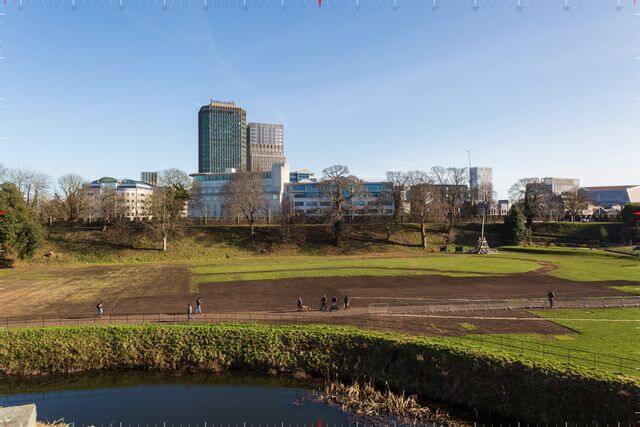
3 July, 2024
MONTAGU EVANS APPOINTS NEW HISTORIC ENVIRONMENTS HEAD
Learn more
3 November, 2021 · 3 min read
Southern Grove West Ealing Limited and Metropolitan Thames Valley Housing have been given the go ahead on appeal for new homes on a site next to West Ealing tube and future Crossrail station.
Their plans to provide 144 (100%) affordable homes in a building up to 19 storeys with ground floor retail/leisure space, amenities, and a communal garden with play space in a car-free development were originally refused by London Borough of Ealing Members on issues around scale, design and transport.
Planning and development consultancy Montagu Evans advised on the original application. Dr Chris Miele of its Historic Environments and Townscape team and Will Edmonds of its Planning team provided expert testimony to the inquiry.
Key issues under consideration were (1) the effect of the proposal on the character and appearance of the area (including the quality of the design, and any impact on the setting and thereby the significance of heritage assets); (2) whether the affordable housing proposed is acceptable; and (3) whether the tilted balance should apply in the absence of the Council being able to demonstrate a five year housing supply.
Dr Chris Miele, Partner at Montagu Evans and Historic Environments and Townscape specialist, said: “This decision is important for a number of reasons. First, the Inspector applied what I would call a character-based approach to the assessment, rejecting the Council’s characterisation of the whole area as suburban. Instead he looked at the particular characteristics of the site and noted its association with the railway and other sites along it, stretching down to Ealing, and all within an metropolitan town centre. Thus, the context for the proposals was that townscape element, and not adjoining lower density residential areas that it had less relationship with. Because he found no harm to character, and identified the architecture as exemplary, he did not need to apply the tilted balance in favour of the proposals which was otherwise engaged.
“Second, the Inspector also had to grapple with the new London Plan policy on tall buildings. While this site was not already designated for tall buildings, it had been allocated within a strategic site in the Local Plan, the design quality was exemplary and did not harm the character or appearance of the area or any heritage interest, so this policy was no impediment to the grant of consent. In other words, if a proposal meets the strict criteria testing in the suite of London Plan design policies intended to make best use of land, including in Policy D9 on tall buildings, then the failure of an LPA to allocate a site for a tall building was not fatal to the case.
“This decision also grappled with urban design considerations such as legibility and scale, which often come to be debated at inquiries,” he added.
Will Edmonds, Partner at Montagu Evans, said: “Where local authorities have an acute need for affordable housing, refusing well-designed, 100% affordable schemes at established and strategic growth transport nodes needs to be carefully calibrated. The Inspector was clear in his judgement that fast tracking such developments is wholly appropriate. Of particular note was the Inspector’s overwhelming support for the scheme against the Development Plan when read as a whole; to the extent he concluded the tilted balance need not be applied in order to allow the appeal.”

15 May, 2024
by Oliver Maury, Matthew Hayes
Learn more

19 April, 2024
by Ben Tosland, Chris Miele, Florence Loader
Learn more

9 April, 2024
by James Huish, Eleanor Mazzon
Learn more